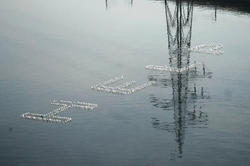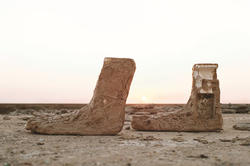The New Delhi-based conceptual artist challenges the conventions of language, sexuality and marginalization.
Endowed Kirloskar Program Brings Artist Tsohil Bhatia to RISD for Monthlong Engagement
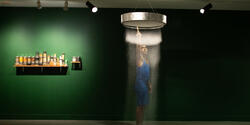
Outside of Woods-Gerry House on the east side of campus, a massive pot rack hangs from one of the property’s ancient oak trees. The assembled pots and pans clank together when the wind stirs them, creating an inanimate cacerolazo protesting the world’s woes.
The installation is part of This Fire That Warms You, a conceptual exhibition by visiting artist Tsohil Bhatia that was on view in RISD’s Memorial Hall Gallery in early autumn. The iterative project, which was launched last year at the CUE Art Foundation in New York City, acknowledges and uplifts the normally invisible labors of the kitchen: the hours that go into preparing a meal and washing the dishes afterwards.
“I believe in food for pleasure, and I love making food that is laborious,” says Bhatia. “It is through this labor and the desire for pleasure that a simple ingredient like rice can become something spectacular.”
Bhatia’s monthlong engagement at RISD was made possible through the Kirloskar Visiting Scholar in Painting program, which was launched in 2013. Endowed by Geetanjali Kirloskar and her late husband Vikram, the program develops dialogue connecting RISD with South Asia-based artists and practices. Past Kirloskar visiting artists include RISD alums Huma Bhabha 85 PR and Shahzia Sikander MFA 95 PT/PR and the interdisciplinary, New Delhi-based Raqs Media Collective.
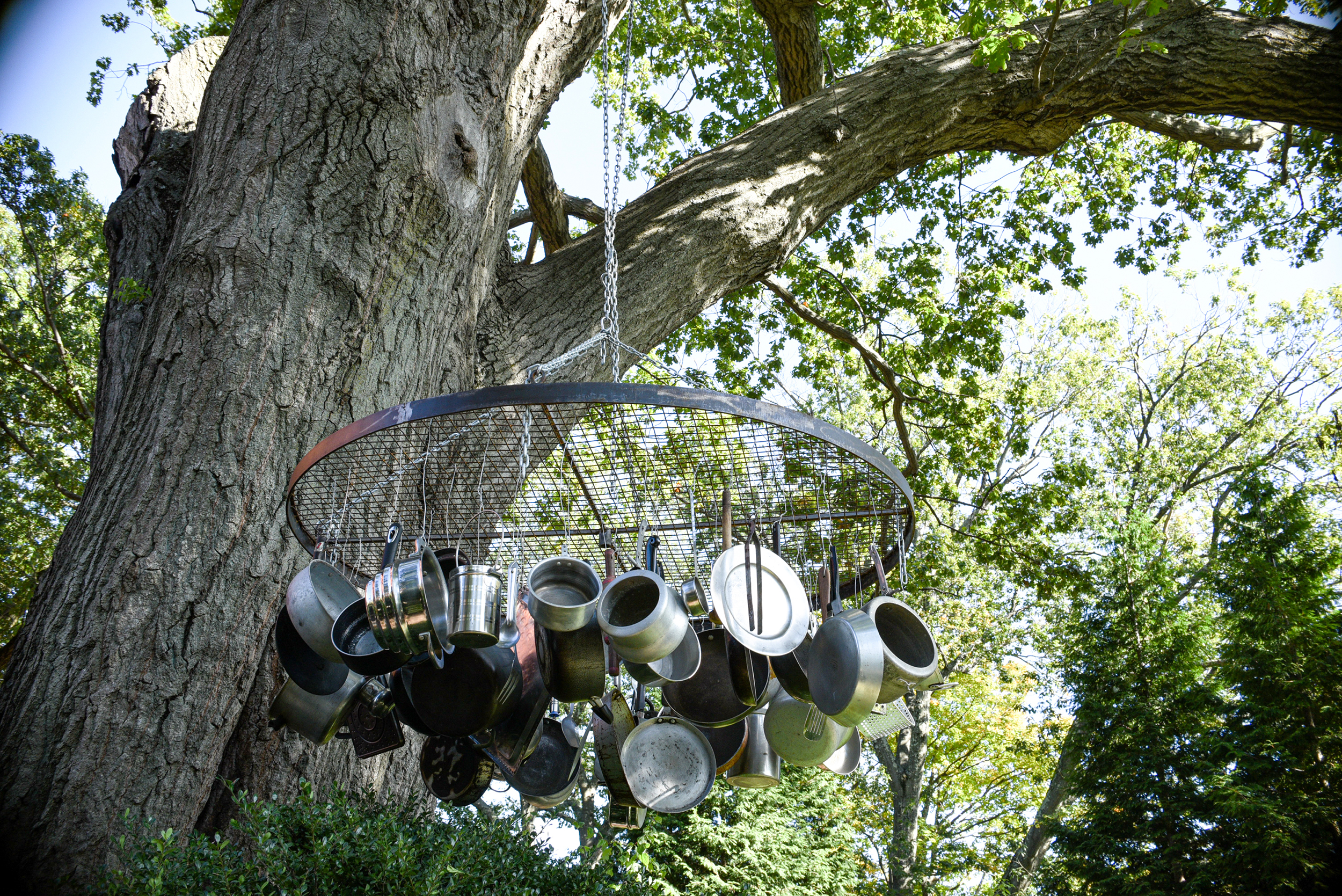
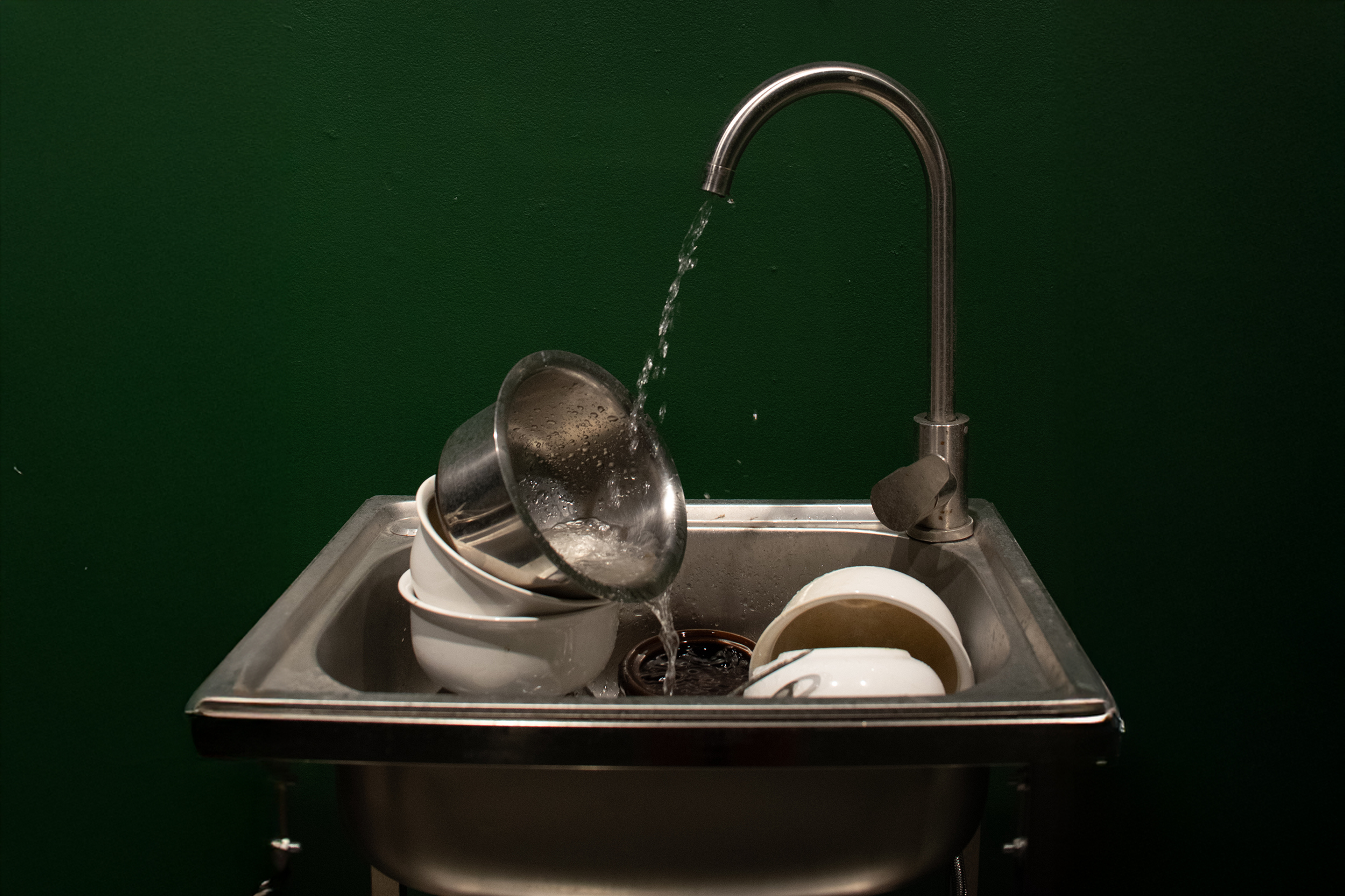
“The endowment supports engaged scholarship, cultural exchange, and unprecedented arts programming,” says Painting Professor Angela Dufresne, who introduced Bhatia and their longtime collaborator Jenna Hamed for a mid-October conversation about the work on view. “I see Tsohil’s work as untethered from conventional modalities and dependent on building a kind of trust with the viewer.”
Bhatia and Hamed cofounded the Red Flower Collective in 2021, an ongoing venture based in New York City that treats the kitchen as an open studio and lab for studying the alchemical processes of cooking and the aesthetics of cultural production. The work plays with form, going beyond a food-based practice to incorporate installation, performance, and printed matter.
Bhatia’s work, the artist explains, emerges from contemplations about the latencies of mundane objects, daily rituals, and images—bringing together the complexities of the everyday and of the body’s relationship with time and the space it inhabits. With an emphasis on care and communal eating, they challenge notions of fetishization, transaction, and consumption as related to ecosystems of food service and its associated practices.
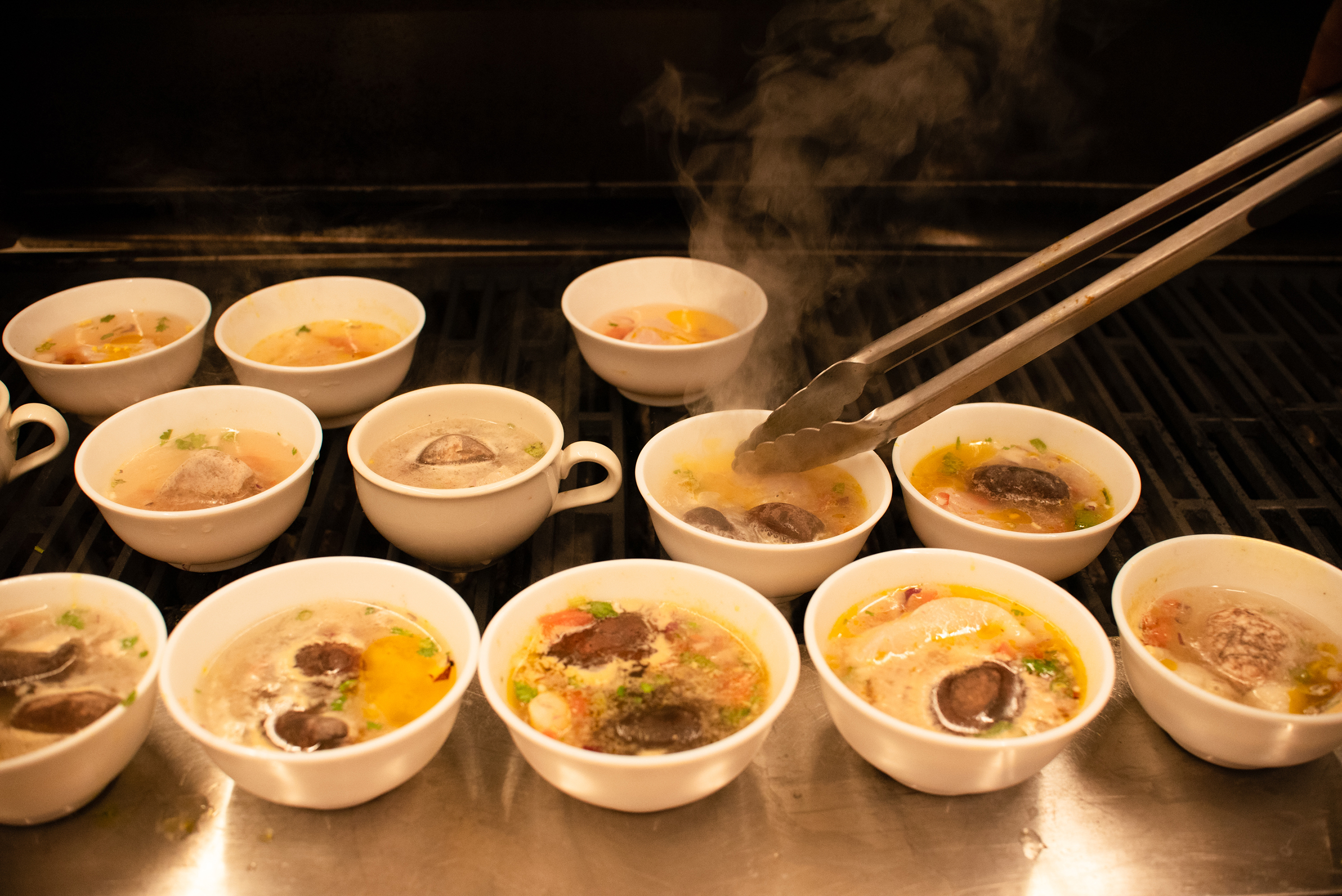
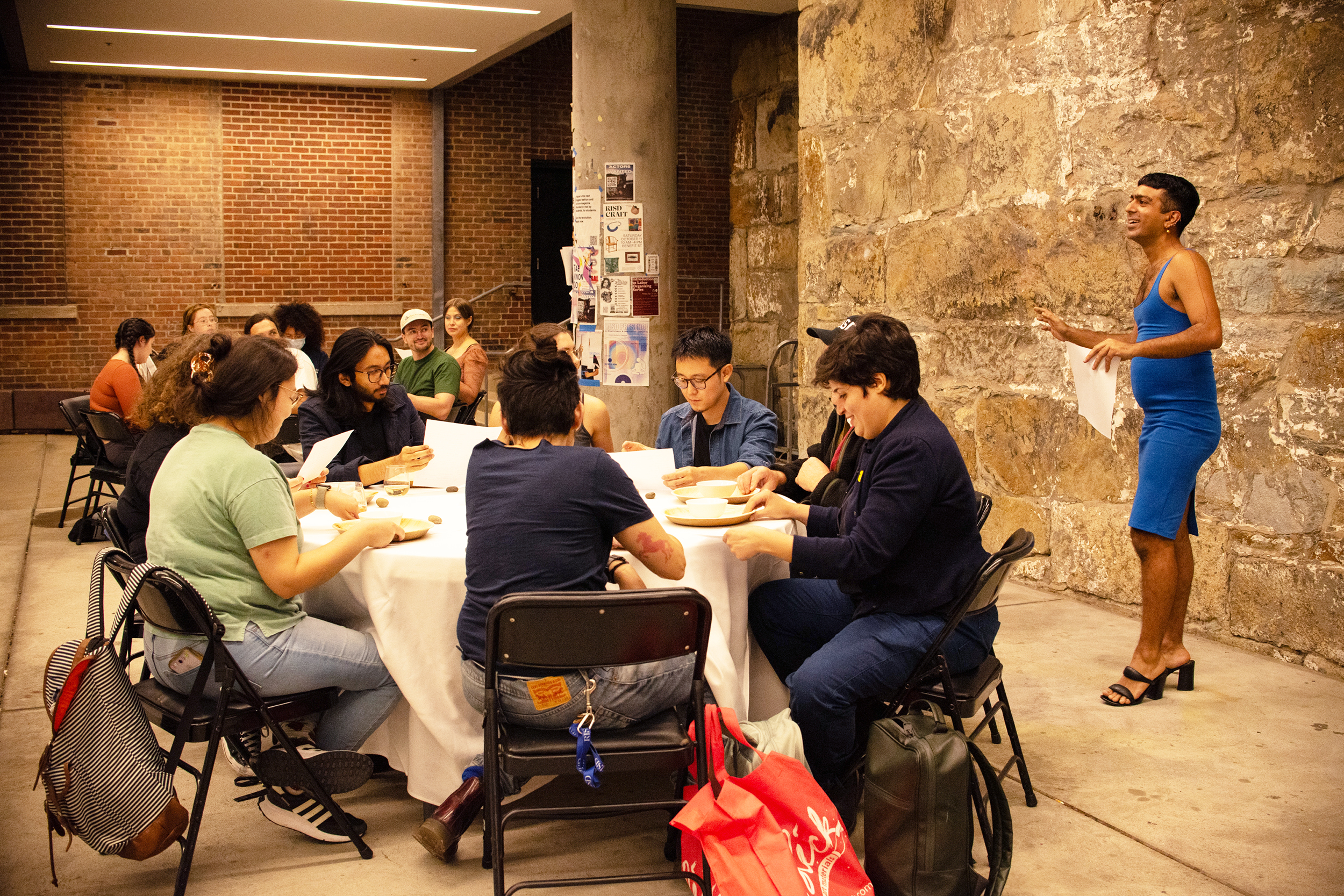
During their talk at RISD, Bhatia reflected on some of the “endurance performances” they have enacted in recent years, including Untitled (Rano), which encompassed 146 pounds of kneaded dough (the same weight as the artist’s body) and mourned the inevitable loss of time and its bodily manifestations. An earlier piece, The Length of Daylight II, measured the sun’s movement the day after the autumnal equinox and had Bhatia walking its path repeatedly while counting their steps for more than 14 hours.
The artist says that This Fire That Warms You plays with notions of time (the time it takes for ingredients to ferment in the refrigerator, for example) and is about “showing up for the space you care for: your home.” They cooked an elaborate meal for the RISD community as part of their engagement and recalled formative years spent in their childhood kitchen watching and learning from their mother.
Painting department Graduate Program Director Meena Hasan describes Bhatia’s practice as “an invaluable reminder that none of us exists alone, that we are all artists in community. It embraces humanity and ephemerality and unifies art and life,” she adds, “constructing systems that can’t easily be bought, bent, or controlled.”
Simone Solondz / photos by Cheryl Mukherji
October 23, 2025

